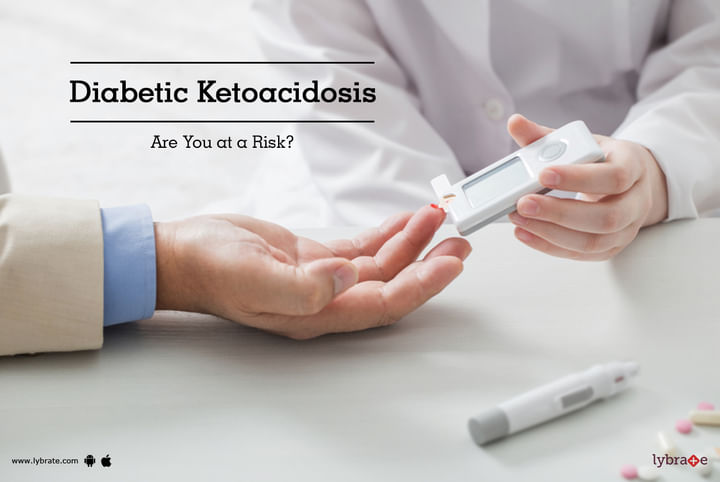Diabetic Ketoacidosis: Are you at risk?
Diabetes is a serious health disorder and often leads to a number of complications. Diabetic ketoacidosis (DKA) is one such complication arising most commonly in case of type 1 diabetes. DKA causes the body to fill up with a dangerous substance called ketones, due to the lack of insulin caused by diabetes.
Who are at risk from diabetic ketoacidosis?
People suffering from type 1 diabetes do not produce enough insulin. This makes them greatly susceptible to ketone formation, leading to diabetic ketoacidosis. In fact, diagnosis of DKA may be the first sign of diabetes.
However, people suffering from type 2 diabetes may also be affected by diabetic ketoacidosis, even though the chances are much lower. In people with type 2 diabetes, the insulin levels are often normal, but the body does not react normally to the said insulin.
Symptoms of diabetic ketoacidosis-
If you are suffering from diabetic ketoacidosis, here are some warning signs to look out for-
-
Frequent urge to urinate
-
Elevated blood sugar levels
-
Constant feeling of thirst
-
Confusion
-
Pain in the abdomen
-
Rapid and intense breathing
Treatment for diabetic ketoacidosis
DKA requires immediate treatment. The goal of the treatment is to reduce the blood glucose levels and regulate insulin levels in the body. Treatment options include-
-
Fluid replacement- This form of treatment helps treat dehydration in the body, as lack of fluids in the body can further push the blood sugar levels. Fluids are administered intravenously in a clinic.
-
Insulin therapy- Insulin is administered intravenously to reduce the blood glucose levels. Once the sugar drops below 240 mg/dL, the doctor will prescribe medications to limit the blood sugar in the future.
-
Electrolyte replacement- With the increase in blood sugar levels, the electrolyte levels in the body drop. Without proper electrolytes, the heart and nerves cannot function normally. Therefore, intravenous electrolyte replacement therapy is required when blood sugar levels cross the 240 mg/dL mark.
Your doctor will decide the correct course of treatment based on your condition.
Updates From Lybrate: A Good and healthy Diabetic diet of nutritious products can help in managing the diabetes problem. You can explore a wide range of diabetic supplements available on Lybrate.


+1.svg)
